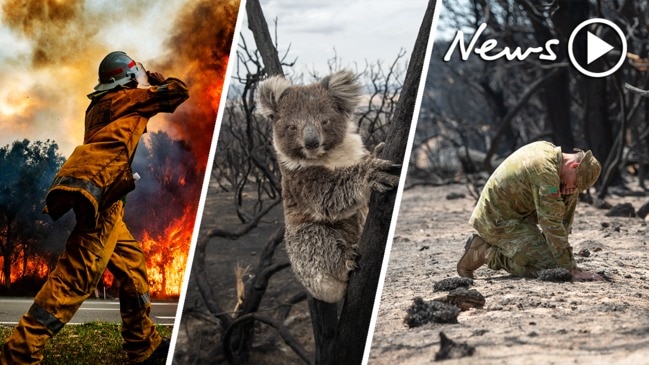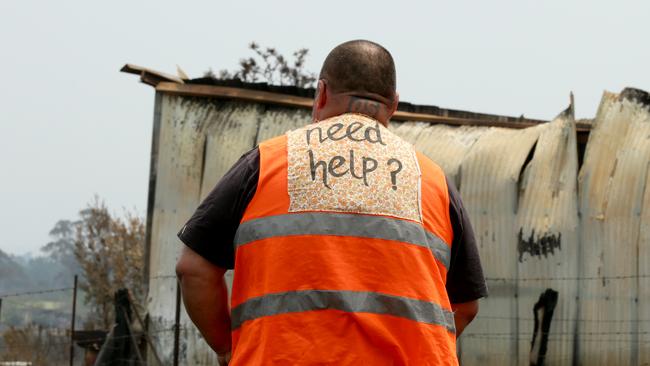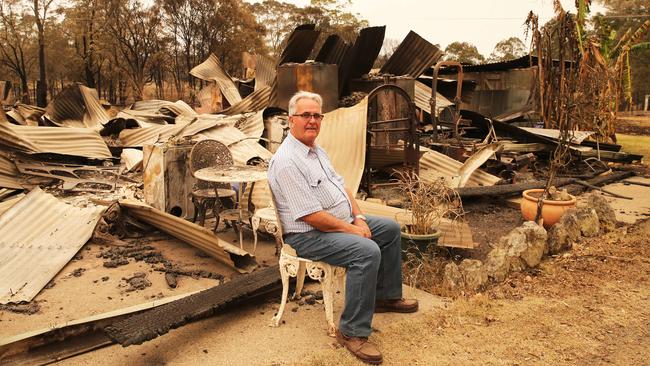Traditional charities risk being replaced by crowd-funding
Our trust has been broken by the news that some charities had stockpiled bushfire donations, writes Gary Nunn. No wonder we’re turning to grassroots fundraising.

Rendezview
Don't miss out on the headlines from Rendezview. Followed categories will be added to My News.
It pains me to join the current backlash against traditional disaster relief charities. But join it I must.
It’s happening because three major charities – the Red Cross, Vinnies and The Salvation Army – are squirrelling away funds donated for the bushfire crisis for future disasters.
Much ire has fallen on the Red Cross because they’ve received the most funds – $90 million.
NSW Minister Andrew Constance said: “How dare they say they’re only going to spend a third of donations when people are traumatised and in crisis?”
People are understandably upset. This news sits alongside story after story of newly homeless Australians who’ve lost everything, applied for charity grants and not received a cent.
They feel betrayed and misled because the money they donated was a direct result of the heartbreaking bushfire crisis stories – and that’s where they want their money spent. Not, as Andrew Constance remarked, “an opportunity to grow [these] organisations.”
Be wary here. Coalition MPs are in no position to lecture others on the effective stewarding of grants to organisations who actually most need them with the Bridget McKenzie pork-barrelling scandal unravelling. It’s a bit rich.
I spent 12 years in the non-profit sector. All three charities would now be in “PR crisis mode”. But they should engage with it.

It all comes down to about trust and transparency.
People donate to an appeal in good faith that money will be spent on that appeal. If charities plan otherwise, they need to communicate better with their donor base at the point of donation.
But they’re not. Charities are professional fundraising machines. They’ve capitalised on this opportunity.
This is why we’re seeing an end to the existing charity model as we know it. Just like Uber disrupted traditional taxis, crowd-funding platforms are disrupting traditional charities.
Like every other sector, the incumbent, traditional industry leader will need to pivot rapidly – or face eradication.
Crowd-funding platform GoFundMe recently hired its first on the ground Australian staff.
They already pose an aggressive threat in the fundraising space to legacy charities. $35 million has been raised to support bushfire victims across 7,200 GoFundMe pages from over half a million donations globally.
RELATED: TO THE BUSHFIRE TOWNS — WE’RE FOR YOU
GoFundMe initiatives are started by everyday people – often relatives of those who’ve lost everything. People are, increasingly, giving to individual crowd-funders instead of charities – and it’s clear why.
Crowd-funding money goes directly to the needy person, unlike in a charity, where there’s a perception it gets lost in the behemoth.
There’s immediate relief with crowd-funders. You can see the speed with which people can access funds specifically raised for urgent items. It removes the middleman.
It’s also tangible. Perusing GoFundMe today, I can see campaign update pictures of caravans purchased – acting as essential temporary homes. Then there’s fencing, food and generators purchased with money generously donated to this new model of raising funds for people in urgent need.

Once, charities got away with being ethereal and vague. It maximised their fundraising to support the – seriously amazing and often life-changing – work they do.
But that was the old way. New technology in the fundraising space should encourage even better customer service – in this case, to your donors.
There’s sometimes good reason not to ring-fence funding. It could result, for example, in a tiny koala sanctuary receiving millions because they’re so cute, while other species perish because funding can’t be evenly distributed.
Charities should look to GoFundMe for guidance. Crowd-funders come directly from within the community, rather than paternally dictated by someone sat in an office safe from the bushfires.
Unless charities innovate, they’ll suffer the same fate as the traditional taxi when Uber came to town.
Gary Nunn is a charity professional-turned-journalist.
